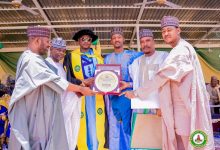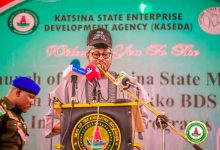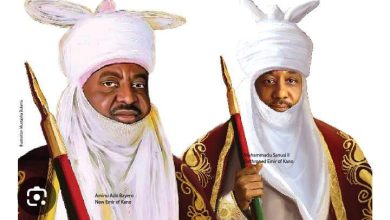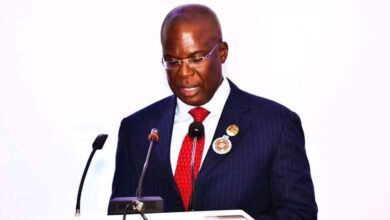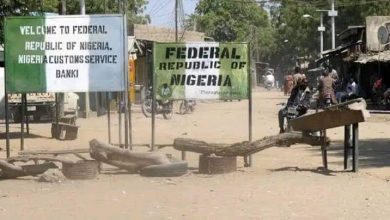Unveiling Nigeria’s Blessings: What Sets It Apart as a Remarkable Nation

Nigeria, often referred to as the “Giant of Africa,” stands out as one of the most blessed countries globally, boasting a rich tapestry of culture, natural resources, and resilience. Despite facing challenges, Nigeria’s inherent blessings have contributed to its status as a beacon of potential and opportunity on the continent. In this blog post, we’ll explore the key factors that make Nigeria one of the most blessed countries in the world, celebrating its diversity and untapped potential.

Cultural Diversity and Harmony
Nigeria’s cultural landscape is as diverse as it is vibrant, with over 250 ethnic groups speaking over 500 languages. This cultural tapestry fosters a sense of unity in diversity, showcasing the country’s ability to embrace and celebrate its rich heritage. From colorful festivals to traditional ceremonies, Nigeria’s cultural richness is a testament to its blessings as a nation.
Abundance of Natural Resources
Nigeria is blessed with abundant natural resources, including oil, natural gas, solid minerals, and fertile agricultural land. These resources form the backbone of the country’s economy and present vast opportunities for growth and development. With proper management and investment, Nigeria’s natural blessings can drive economic prosperity and improve the standard of living for its citizens.
Resilient and Entrepreneurial Spirit
Nigerians are known for their resilience, ingenuity, and entrepreneurial spirit, overcoming challenges with determination and creativity. From bustling markets to innovative startups, Nigeria’s entrepreneurial landscape is thriving, powered by the resilience and resourcefulness of its people. This spirit of enterprise is a testament to Nigeria’s blessings as a nation of opportunity and innovation.
Youthful Population and Human Capital
With a youthful population, Nigeria boasts a demographic dividend that presents immense opportunities for growth and development. The country’s vibrant youth demographic is a source of energy, creativity, and talent, driving innovation across various sectors. Harnessing this human capital through education, skills development, and empowerment initiatives can unlock Nigeria’s full potential and propel it towards greater prosperity.
Strategic Geopolitical Position
Situated in West Africa, Nigeria occupies a strategic geopolitical position that enhances its significance on the continent and globally. As the largest economy in Africa and a key player in regional politics and diplomacy, Nigeria wields influence and contributes to shaping the African narrative. Its strategic position offers opportunities for collaboration, trade, and diplomatic engagement, further amplifying its blessings as a nation.
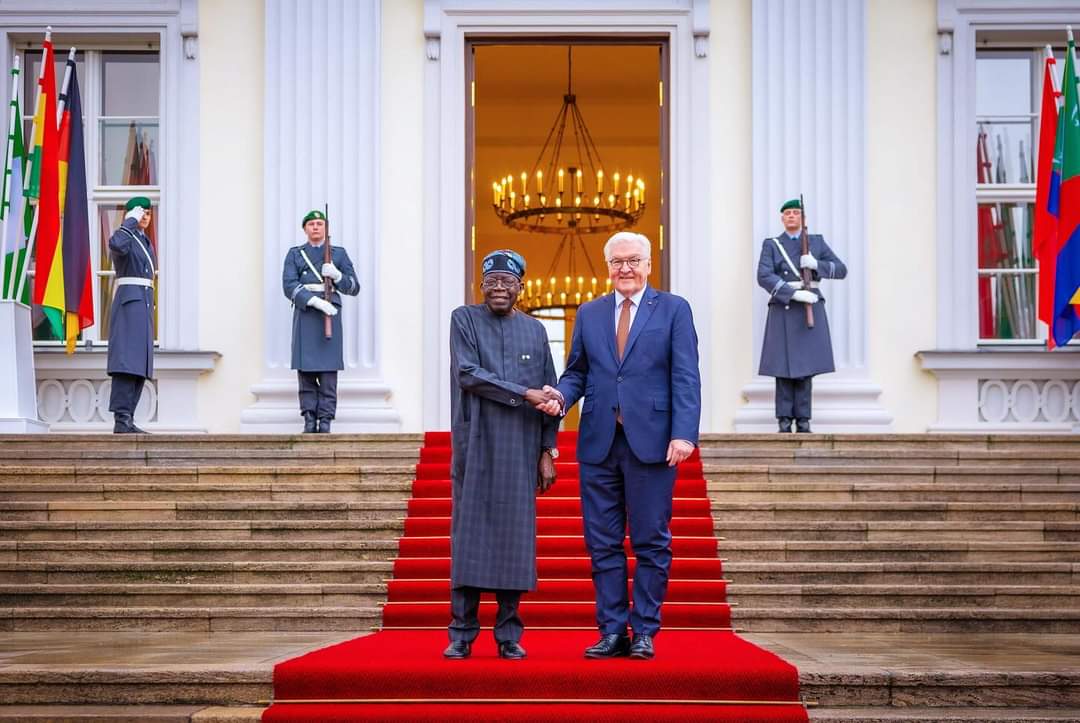
Embracing Unity in Diversity: Nigeria’s Cultural Tapestry
Nigeria, a country known for its vibrant cultural landscape, stands as a testament to the beauty of diversity and the power of harmony. With over 250 ethnic groups and more than 500 languages spoken across its vast expanse, Nigeria celebrates a rich tapestry of traditions, customs, and heritage. In this optimized blog post, we’ll delve into Nigeria’s cultural diversity and the harmonious coexistence that defines its societal fabric.
Celebrating Nigeria’s Cultural Mosaic
Nigeria’s cultural diversity is a source of pride and inspiration, reflecting centuries of history, migration, and interaction among diverse communities. From the Hausa-Fulani in the north to the Yoruba in the southwest and the Igbo in the southeast, each ethnic group contributes unique customs, languages, and artistic expressions to Nigeria’s cultural mosaic.
Festivals and Celebrations
Throughout the year, Nigeria comes alive with a myriad of festivals and celebrations that showcase the richness of its cultural heritage. From the colorful Durbar festival in the north to the lively Osun-Osogbo festival in the southwest and the vibrant New Yam festival in the east, Nigerians gather to celebrate traditions, honor ancestors, and foster community bonds.
Cultural Exchange and Integration
Despite the diversity of Nigeria’s ethnic groups, there exists a remarkable spirit of unity and integration. Interethnic marriages, shared cultural practices, and cross-cultural interactions have fostered a sense of national identity that transcends ethnic boundaries. Nigeria’s cities and towns serve as melting pots where people from different backgrounds coexist harmoniously, enriching each other’s lives through shared experiences and mutual respect.
Language and Literature
Nigeria’s linguistic diversity is a testament to the country’s cultural richness, with hundreds of languages spoken across its regions. From the Hausa language in the north to the Igbo language in the east and the Yoruba language in the southwest, Nigeria’s linguistic heritage is preserved through oral traditions, literature, music, and art, serving as a bridge that connects communities and preserves cultural identity.
Promoting Cultural Unity
Nigeria’s cultural diversity is not without its challenges, but concerted efforts are being made to promote unity and understanding among its diverse population. Educational initiatives, cultural exchange programs, and government policies aimed at preserving and promoting indigenous languages and traditions contribute to fostering a sense of national unity and pride.

Nigeria’s Wealth Beneath: Exploring the Abundance of Natural Resources
Nigeria, endowed with a vast array of natural resources, stands as a beacon of economic potential and opportunity on the African continent. From oil and gas to solid minerals and fertile agricultural land, the country’s abundant resources form the cornerstone of its economic landscape. In this optimized blog post, we’ll delve into Nigeria’s wealth of natural resources and the opportunities they present for sustainable growth and development.
Nigeria’s Natural Bounty
Nigeria’s natural resources span a wide spectrum, encompassing:
- Oil and Gas: Nigeria is one of the largest oil-producing countries in Africa, with significant reserves of crude oil and natural gas located in various regions across the country.
- Solid Minerals: The country boasts abundant deposits of solid minerals such as gold, coal, limestone, iron ore, and tantalite, among others, with vast potential for exploitation and value addition.
- Agricultural Land: Nigeria’s fertile soil and favorable climate support diverse agricultural activities, including crop cultivation, livestock rearing, and fisheries, contributing to food security and economic livelihoods.
Driving Economic Growth and Development
Nigeria’s natural resources serve as catalysts for economic growth and development in several ways:
- Revenue Generation: Income derived from the exploitation and export of oil, gas, and other natural resources contributes significantly to government revenue, financing infrastructure projects, and social programs.
- Employment Opportunities: The extraction and processing of natural resources create employment opportunities across various sectors, including mining, manufacturing, agriculture, and services, thereby reducing unemployment and poverty levels.
- Foreign Exchange Earnings: Exports of oil, gas, and agricultural products generate foreign exchange earnings, stabilizing the country’s balance of payments and supporting imports of essential goods and services.
Sustainable Resource Management
While Nigeria’s natural resources present immense opportunities, their exploitation must be managed sustainably to ensure long-term benefits and environmental preservation. Sustainable resource management practices include:
- Environmental Protection: Mitigating the adverse environmental impact of resource extraction through reforestation, pollution control measures, and sustainable land use practices.
- Community Engagement: Involving local communities in decision-making processes and revenue-sharing mechanisms to ensure equitable distribution of benefits and foster social cohesion.
- Diversification: Diversifying the economy beyond dependence on oil and gas by developing other sectors such as agriculture, manufacturing, and tourism, reducing vulnerability to commodity price fluctuations.
